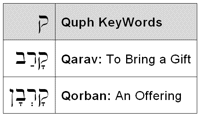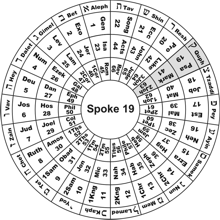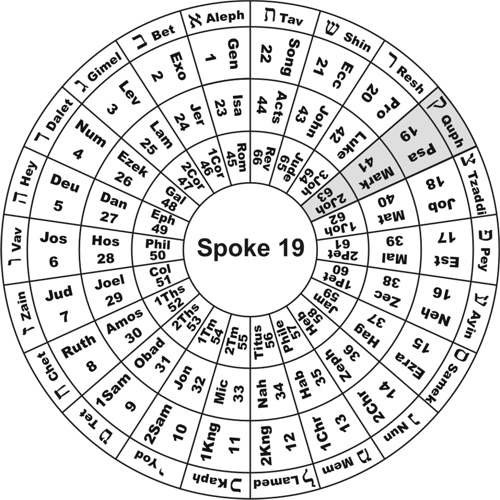Mark: Qorban, A Gift (Alphabetic Link)
For Moses said, Honour thy father and thy mother; and,
Whoso curseth father or mother, let him die the death: But ye say, If a man shall say to his father or mother,
It is Corban, that is to say, a gift, by whatsoever thou mightest be
profited by me; he shall be free. And ye suffer him no more to do ought for his father or his mother;
Making the word of God of none effect through your tradition, which ye have delivered: and many such like things do ye.
Mark 7:10ff (Spoke 19, Cycle 2)
 As
with cumi, Mark interpreted the transliterated Aramaic word, corban (gift),
for the reader. (Note that corban and qorban are equivalent transliterations. I prefer using "q" because it corresponds directly
to Quph.)
The Lord first introduced this word jointly with its verbal root
qarav (see Drawing Near unto God) when He commanded the
Law of Offerings: As
with cumi, Mark interpreted the transliterated Aramaic word, corban (gift),
for the reader. (Note that corban and qorban are equivalent transliterations. I prefer using "q" because it corresponds directly
to Quph.)
The Lord first introduced this word jointly with its verbal root
qarav (see Drawing Near unto God) when He commanded the
Law of Offerings:
And the LORD called unto Moses, and spake unto him out of the tabernacle of
the congregation, saying, Speak unto the children of Israel, and say unto them,
If any man of you bring (qarav) an offering (qorban) unto the LORD,
ye shall bring (qarav) your offering (qorban) of the cattle,
even of the herd, and of the flock.
Leviticus 1:1f
In his Wisdom of the Hebrew Alphabet  ,
Rabbi Munk explained the relation between qorban and the Letter Quph in the Jewish tradition (page 197): ,
Rabbi Munk explained the relation between qorban and the Letter Quph in the Jewish tradition (page 197):
ק stands for qorban, Temple offering.
In Temple times, if one found a vessel on which ק was written,
he assumed that the contents were consecrated (Maaser Sheni 4:11). Unlike the common misconception that
an offering is a "sacrifice" with the goal of forcing man to give up something of value to
"appease" God, the word comes from the root qarav, to come close.
When the Temple stood, the sacrifices brought the worshipers closer to Hashem and brought God's
blessing to the entire world.
A hundred camels will run through the eye of a needle before skeptics will
be able to devise a naturalistic scheme to explain how these Aramaic words – cumi and corban –
could be both unique to Mark and based on Quph KeyWords found in the Alphabetic Verses.
Praise God for His invincible Word!
|



